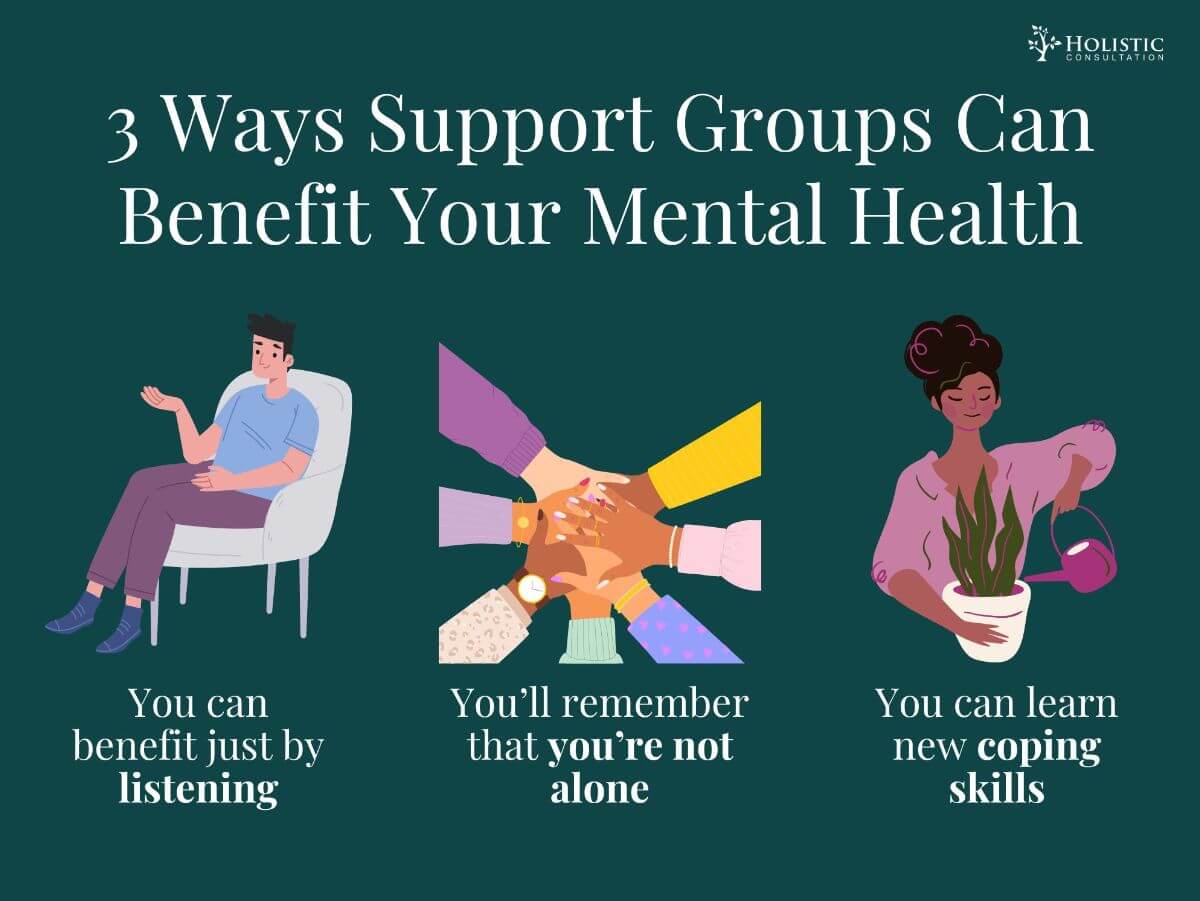The Ultimate Guide To Mental Health Counseling
Wiki Article
The 10-Second Trick For Mental Health Counseling
Table of ContentsHow Mental Health Counseling can Save You Time, Stress, and Money.The Definitive Guide for Mental Health CounselingSome Ideas on Mental Health Counseling You Should KnowMore About Mental Health CounselingFacts About Mental Health Counseling Uncovered
Via treatment, you can obtain understanding into your very own patterns of behavior and communication, which can cause more satisfying and satisfying partnerships with good friends, family, and charming companions. What we assume, we manifest. If you're eaten with negative emotions and adverse thoughts that are conflicting with your life, therapy can aid., or there are other unfavorable means you behave. Therapy can aid you change those actions that are having an unfavorable effect on your world and relationships.

The relevance of treatment surpasses your mental health. Getting treatment to attend to certain facets of your life can assist you be much more effective in various other areas, consisting of work. Some study has actually even shown that there's a straight connection in between seeking psychological health help and a reduction in missed job.

Not known Details About Mental Health Counseling
There are also extra benefits of treatment than just the ones we have actually talked about., or develop connections (romantic or those with family or pals) in a healthy means.For the objective of the present study, regarded advantages and obstacles to mental wellness help-seeking are being checked out. Previous study located that regarded barriers have a substantial result on university student' wellness behavior selections (Von Ah, Ebert, Ngamvitroj, Park & Kang, 2003). Perceived benefits and obstacles to help-seeking were especially selected because of their influence on decision-making and ultimately action (Glanz, Rimer, & Su, 2005).
The existing study seeks to take a look at whether stigma serves as an obstacle to treatment among university student. Eisenberg et al. (2011) suggested that hesitation concerning therapy efficiency is another barrier to joining therapy. Research findings revealed that college trainees recommended a number of barriers to taking part in treatment. Mental Health Counseling. Among these were: (1) choosing to manage mental health and wellness issues themselves, (2) not having enough time to take part in therapy, (3) concerns regarding whether psychological health and wellness therapy works in remediating issues, (4) a belief that stress is normal or the problem will certainly obtain far better without treatment, (5) lack of cash, and (6) bother with what others would assume if they discovered out regarding treatment engagement.
Staff in campus mental health and wellness facilities might be viewed as hostile, and long wait times for services might be "off-putting" for trainees. Factors assisting in extra favorable perspectives are usually at the contrary post of those factors determined as obstacles.
Getting My Mental Health Counseling To Work
One in three (34.6%) reported living on school and one in four (23.3%) reported dealing with moms and dads. Nearly fifty percent of trainees were entailed in school companies and 1 in 10 reported being in a fraternity or sorority. More than one-third of trainees (38.1%) reported that they had a member of the family or friend with a detected mental health problem.

9 Simple Techniques For Mental Health Counseling
Univariate F-tests identified details why not try these out subscale products that significantly differed. Females were less likely than males to regard people that go to therapy as emotionally weak, individuals that most likely to therapy as insane, to really feel that people with mental illness must deal with troubles on their very own, that individuals that go to therapy as not able to fix troubles, that individuals who go to therapy slouch, why not check here and to feel that people who go to counseling are various from typical people in a negative method.Research results revealed that women were substantially much less likely than men to hold stigma-related mindsets. This follows previous research which additionally discovered that males hold greater degrees of viewed stigma than females (Chandra & Minkovitz, 2006). Based on research searchings for, it appears that men may be much less most likely than ladies to look for therapy because of low perceived barriers as well as high stigma-related attitudes.
All About Mental Health Counseling
In addition, college health professionals might supply academic programs targeting men with information on the benefits of mental health and wellness treatment and the importance of looking for assistance when needed., the present research study found no considerable differences in the number of perceived barriers to help-seeking habits based on sex.Scientist guess that this is mainly due to conventional social standards and gender roles that characterized males based upon toughness and lack of emotional expression (Addis & Mahalik, 2003; Ang, Lim, Tan, & Yau, 2004; Going Here Mojtabai, 2007). In general, there have been combined results amongst the university student populace pertaining to sex distinctions (Rosenthal & Wilson, 2008). This searching for was unexpected and could highlight that those that had actually obtained therapy had a better idea of wait times and various other "gain access to" barriers that might make it tough to begin treatment. Maybe, individuals who have actually received therapy sight a lot more barriers than participants that have not obtained therapy since looking for therapy services again could include concern of self-disclosing personal details to a new counselor.
Report this wiki page